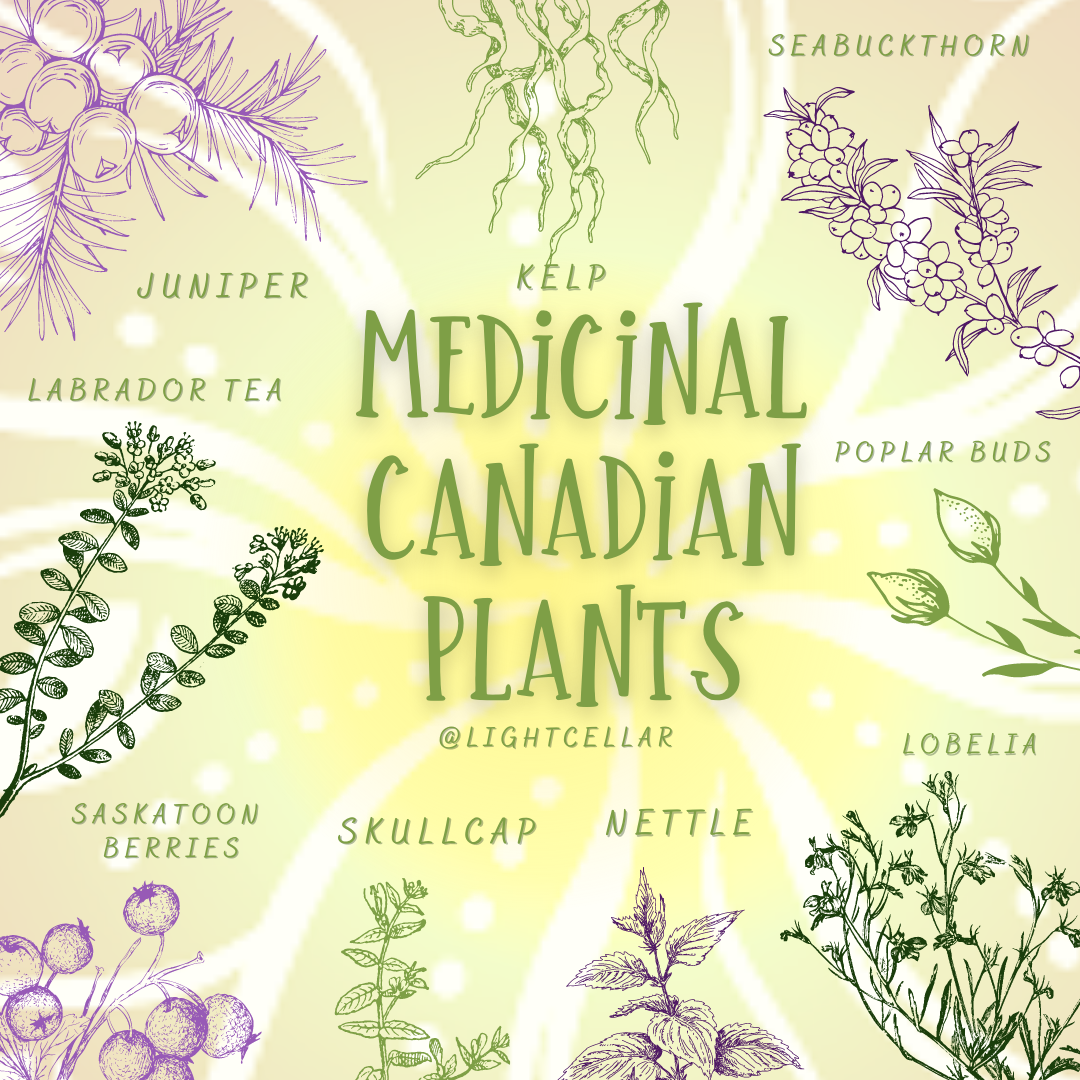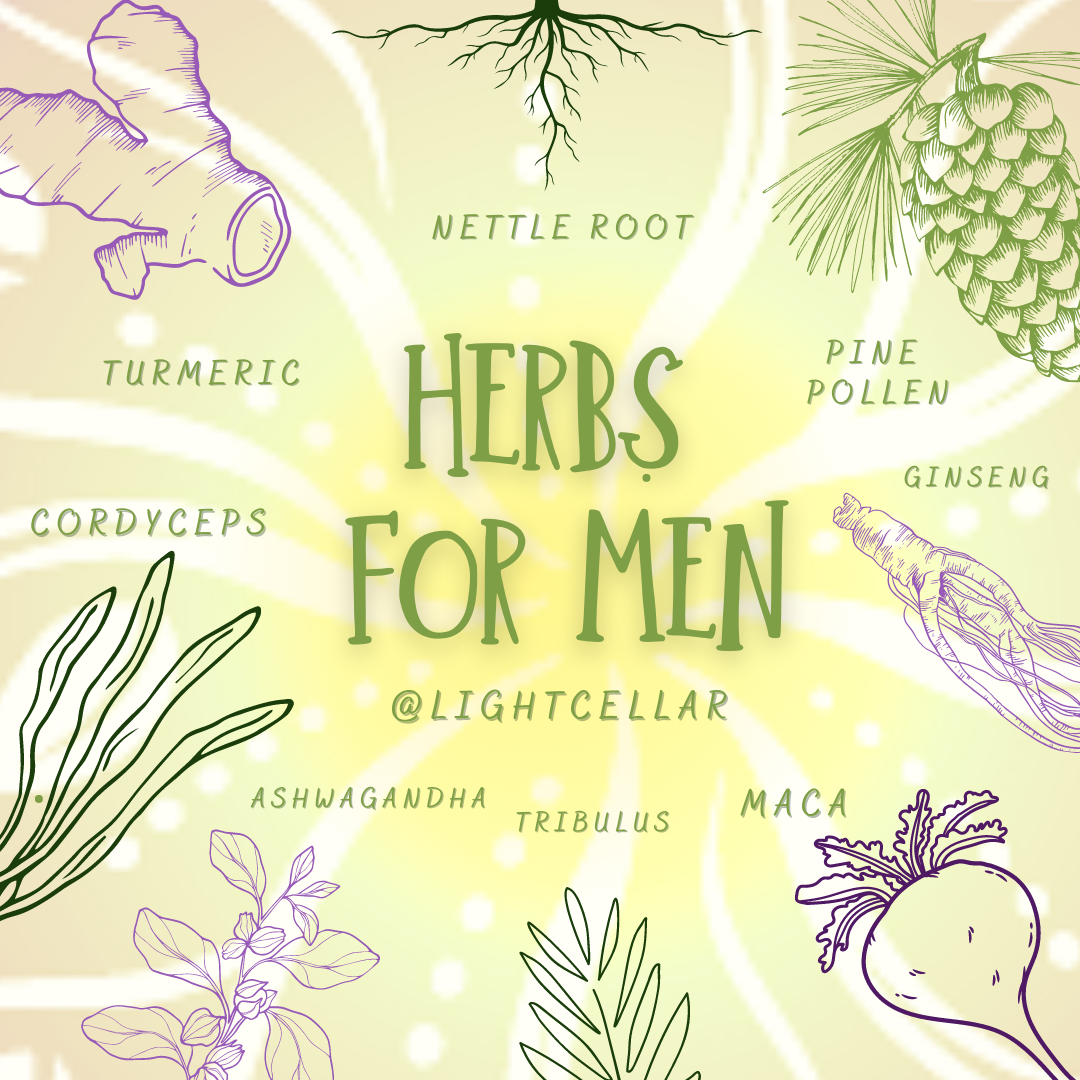Herbs To Encourage Hair Growth

Hair plays a significant role in our lives, extending far beyond its aesthetic value. It serves as an emblem of our individuality, helping to define our identity and express our personal style.
Beyond its visual appeal, hair serves as a protective barrier, shielding our scalp from environmental elements such as the sun's harmful rays or extreme temperatures. It also acts as a sensory organ, offering us tactile feedback and serving as a warning system when something touches or brushes against our heads.
Hair can evoke emotions, acting as a symbol of vitality, confidence, and self-care. It often holds cultural and historical significance, reflecting traditions, beliefs, and societal norms. Additionally, hair has the power to bond people together, as sharing hairstyling rituals and experiences can foster connections and create lasting memories. Ultimately, hair holds a profound importance in our lives, intertwining beauty, self-expression, protection, and connection within its delicate strands.

As many of us navigate through life, hair loss becomes an matter that we start noticing more and more. Hair loss is a common and challenging experience that many people face, causing emotional distress and impacting self-esteem. The gradual or sudden thinning of hair can lead to feelings of vulnerability, self-consciousness, and a loss of confidence. Coping with the frustration and disappointment of losing hair can be an ongoing struggle, leading some individuals to explore various remedies, treatments, or hair replacement options to regain a sense of normalcy and restore their confidence.
What are the reasons that cause hair loss?
Let's look at the top 10 reasons for hair loss:
1. Genetic Factors: Family history and genetics can play a significant role in hair loss, with male pattern baldness (androgenetic alopecia) being the most common form.
2. Hormonal Changes: Hormonal imbalances, such as those occurring during pregnancy, childbirth, menopause, or conditions like polycystic ovary syndrome (PCOS), can contribute to hair loss.
3. Ageing: As individuals age, hair follicles may gradually shrink and produce thinner and shorter strands, leading to hair thinning and eventual hair loss.
4. Medical Conditions: Certain medical conditions, including thyroid disorders, autoimmune diseases, scalp infections, and alopecia areata, can result in hair loss.
5. Medications and Treatments: Some medications, such as those used for cancer (chemotherapy), high blood pressure (beta-blockers), and depression (antidepressants), can cause hair loss as a side effect.
6. Stress and Emotional Factors: Psychological stress, trauma, anxiety, and extreme emotional experiences can trigger temporary hair loss conditions like telogen effluvium.
7. Nutritional Deficiencies: Inadequate intake of essential nutrients like riboflavin, biotin, folate, and vitamin B12 deficiencies lead to hair loss.
8. Hairstyling Practices: Excessive use of heat styling tools, frequent chemical treatments (perming, relaxing), tight hairstyles (ponytails, braids), and improper hair care practices can cause hair breakage and traction alopecia.
9. Environmental Factors: Exposure to pollutants, toxins, and UV radiation can damage hair follicles and contribute to hair loss over time.
10. Sudden Weight Loss: Rapid and extreme weight loss, often associated with crash diets or certain eating disorders, can trigger temporary hair shedding.
It is important to note that identifying the underlying cause of hair loss is crucial for proper diagnosis and treatment. Consulting a healthcare professional or dermatologist is recommended for a personalized evaluation and guidance.
There are many factors that can help with encouraging hair growth, however from a herbal remedy perspective, there is an impressive variety of herbs that can help!
1. He Shou Wu Root

He Shou Wu, also known as Fo-Ti, is an herb that has long been used in traditional Chinese medicine for its potential benefits in addressing hair loss. One of the key reasons why He Shou Wu is believed to be good for hair loss is its ability to nourish the kidneys and liver, according to the principles of Chinese medicine. These organs are thought to play a significant role in hair health and vitality. He Shou Wu is believed to help strengthen the hair follicles, promote healthy hair growth, and reduce premature graying. It is also believed to have antioxidant and anti-inflammatory properties, which can help protect the hair follicles from damage and inflammation that may contribute to hair loss. Additionally, He Shou Wu is believed to have a tonifying effect on the blood, helping to improve circulation and deliver essential nutrients to the hair follicles. While more scientific research is needed to fully understand the mechanisms and effectiveness of He Shou Wu for hair loss, it continues to be a popular herbal remedy with anecdotal reports of positive outcomes. As with any herbal supplement, it is advisable to consult with a healthcare professional before incorporating He Shou Wu into your regimen.
He Shou Wu can be taken internally! We have a tea form .
2. Rosemary

Rosemary is an herb that has been associated with various benefits for hair growth and scalp health. One of the key reasons why rosemary is believed to be good for hair growth is its potential to stimulate blood circulation in the scalp. Improved circulation means better delivery of oxygen and nutrients to the hair follicles, promoting healthier hair growth. Rosemary also contains certain compounds that may inhibit the activity of an enzyme called 5-alpha reductase, which converts testosterone into dihydrotestosterone (DHT). Excessive DHT is linked to hair loss, particularly in individuals with a genetic predisposition to androgenetic alopecia. By reducing the conversion of testosterone into DHT, rosemary may help prevent hair follicle miniaturization and promote hair growth. Furthermore, rosemary has antioxidant properties that can help protect the scalp and hair follicles from oxidative stress and damage caused by free radicals. It also possesses antimicrobial properties that may contribute to a healthier scalp environment by inhibiting the growth of certain bacteria and fungi. Rosemary oil or extracts are often used topically in hair care products or as scalp treatments to help nourish the hair, strengthen the follicles, and promote hair growth. While more research is needed to fully understand the mechanisms and effectiveness of rosemary for hair growth, it is a popular natural remedy with a long history of traditional use for promoting healthy hair.
We have a Rosemary Hydrosol spray or a Rosemary Mint Hair Oil that can be applied topically on your scalp or even on your face to encourage beard growth. Want to learn more about the benefits of rosemary for hair growth? Check out our blog post!
3. Sage

Sage, an aromatic herb widely recognized for its culinary and medicinal uses, is believed to offer benefits for hair growth. One of the reasons why sage is considered good for hair growth is its potential to regulate sebum production. Excessive sebum, an oily substance produced by the scalp, can clog hair follicles and impede healthy hair growth. Sage may help balance sebum production, maintaining a healthier scalp environment for optimal hair growth. Additionally, sage is rich in antioxidants that help protect the hair follicles from oxidative stress, which can lead to hair damage and thinning. It also possesses anti-inflammatory properties that may help alleviate scalp conditions such as dandruff and itching, promoting a healthier environment for hair growth. Sage is often used as an infusion or essential oil in hair care products and scalp treatments, providing nourishment, stimulating blood circulation, and supporting overall hair health. While scientific research on sage specifically for hair growth is limited, its long-standing use in traditional medicine and anecdotal evidence suggest its potential benefits in promoting healthy hair growth.
Check out our Sage Hydrosol spray that can be applied topically to your scalp!
4. Hibiscus

Hibiscus, a vibrant flower with medicinal properties, is known for its potential benefits in promoting hair growth. Rich in vitamins, minerals, and antioxidants, hibiscus provides nourishment to the hair follicles and scalp, helping to stimulate healthy hair growth. It has been traditionally used to strengthen the hair shaft, prevent hair breakage, and improve overall hair texture. Hibiscus is believed to possess natural conditioning properties, making the hair smoother, softer, and more manageable. It also helps maintain scalp health by reducing inflammation, soothing itchiness, and controlling dandruff. Additionally, hibiscus contains natural surfactants that help cleanse the scalp and hair, removing excess oil and buildup. With its rejuvenating effects, hibiscus is often used in hair care products or as a natural hair rinse to enhance hair growth and improve the overall health and appearance of the hair. While scientific research on hibiscus for hair growth is limited, its long history of traditional use and anecdotal evidence make it a popular choice for those seeking natural remedies to promote healthy hair.
Hibiscus can be consumed as a tea or you can use it as a hair rinse that be made by brewing a cup of tea, cooling it and using it as a hair rinse after shampooing! You can also try the powder form mixed into a smoothie, elixir, dessert etc.!
5. Holy Basil

Holy Basil, also known as Tulsi, is a revered herb in Ayurveda with a wide range of potential benefits, including promoting hair growth. One of the reasons why Holy Basil is believed to be good for hair growth is its ability to improve blood circulation. Adequate blood flow to the scalp ensures that hair follicles receive the necessary nutrients and oxygen for optimal growth. Holy Basil is also rich in antioxidants, which help protect the hair follicles from damage caused by free radicals. This herb possesses antimicrobial properties that may combat scalp infections and soothe irritations, creating a favorable environment for healthy hair growth. Additionally, Holy Basil is thought to balance hormone levels, including the stress hormone cortisol, which can contribute to hair loss. By reducing stress and its impact on the body, Holy Basil may help maintain healthy hair growth. It is commonly used in hair oils, shampoos, and treatments to nourish the scalp, strengthen the hair roots, and promote thick, lustrous hair. It's also been known for boosting hair health and balancing hair oil production. While scientific research on Holy Basil specifically for hair growth is limited, its long history of traditional use and anecdotal evidence make it a promising natural remedy for supporting optimal hair health.
Holy Basil can be consumed as a tea, tincture, or the powder form can be blended in hot chocolate/elixirs. We even have a topical Holy Basil Hydrosol Spray that can be applied on your scalp!
6. Horsetail

Horsetail, an ancient plant with a unique composition, is considered beneficial for promoting hair growth. One of the reasons why horsetail is believed to be good for hair growth is its high silica content. Silica is a mineral that is essential for the formation of collagen, a protein that supports the structure and strength of hair strands. By providing an abundant source of silica, horsetail may help enhance hair elasticity, prevent breakage, and promote overall hair health. Horsetail is also known for its potential to improve blood circulation, which can stimulate the hair follicles and encourage healthy hair growth. Additionally, it possesses antioxidant and anti-inflammatory properties that help protect the scalp and hair follicles from oxidative stress and inflammation, which can contribute to hair loss. Horsetail is often used in hair care products or as a herbal infusion for scalp treatments to nourish the hair, strengthen the follicles, and promote thicker, healthier hair. While scientific research on horsetail specifically for hair growth is limited, its historical use and anecdotal evidence suggest its potential benefits in supporting optimal hair health.
Horsetail can be consumed as a tea or made into a hair rinse that be made by brewing a cup of tea, cooling it and using it as a hair rinse after shampooing!
7. Nettle leaf

Nettle leaf is derived from the stinging nettle plant, has long been recognized for its potential benefits in promoting hair growth. One of the reasons why nettle leaf is considered good for hair growth is its rich nutritional profile. It is packed with vitamins and minerals, including vitamins A, C, and K, as well as iron, silica, and magnesium. These nutrients play essential roles in supporting healthy hair follicles and promoting overall hair health. Additionally, nettle leaf possesses anti-inflammatory properties that can help soothe scalp conditions, such as dandruff and scalp irritation, creating a healthier environment for hair growth. It is commonly used in hair care products, supplements, and herbal infusions to nourish the scalp, strengthen the hair follicles, and support vibrant and lustrous hair. While scientific research on nettle leaf specifically for hair growth is limited, its historical use and anecdotal evidence suggest its potential as a natural remedy for promoting optimal hair health.
Nettle leaf can be consumed in tincture form, tea form or as a hair rinse that be made by brewing a cup of tea, cooling it and using it as a hair rinse after shampooing.
8. Peppermint

Peppermint, a refreshing and aromatic herb, is believed to offer several benefits for promoting hair growth. One of the key benefits of peppermint is its ability to stimulate blood circulation in the scalp. Improved blood flow means better delivery of oxygen and nutrients to the hair follicles, which can support healthy hair growth. Peppermint also contains menthol, which has a cooling and soothing effect on the scalp, helping to alleviate scalp conditions like itching and inflammation. Additionally, peppermint has antimicrobial properties that can help combat scalp infections and maintain a healthier environment for hair growth. It may also help balance the production of sebum, the natural oil produced by the scalp, preventing clogged follicles that can impede hair growth. Peppermint is often used in hair care products, such as shampoos and scalp treatments, to invigorate the scalp, promote hair strength, and add a refreshing sensation. While scientific research on peppermint specifically for hair growth is limited, its invigorating properties, historical use, and anecdotal evidence make it a popular choice for those seeking natural remedies to support healthy hair growth.
Peppermint can be applied topically as a hair rinse that be made by brewing a cup of tea, cooling it and using it as a hair rinse after shampooing!
Looking for a product that is a blend of almost all the herbs listed above?
Check out our Mindful Tea Blend

Mindful Tea Blend - Made In House - 113g
Activate your mind's potential. Sip on our brain optimizing tea blend, a harmonious fusion of nourishing herbs and botanicals, said to elevate focus, clarity, and cognitive function.
Not only does this tea blend help with optimizing brain function, it also has a dual purpose for encouraging hair growth!
Ingredients: Gingko, Gotu Kola, Wild Blueberry, Hibiscus Flower, Dried Lion's Mane Mushroom, Rosemary, Sage
Dosage: Enjoy as a warm or cold tea. Use 1-2 tbsp for a strong infusion and let steep at least 10min
We hope these herbal remedies find you well on your healthy hair growth journey. Let us know if you have any questions and thank you for reading!



